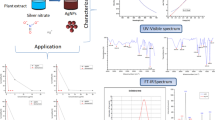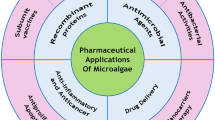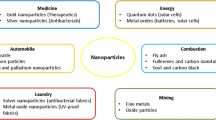Abstract
Gentamicin is a common aminoglycoside antibiotic used in clinical practice. However, its use is being increasingly restricted owing to its adverse effect on the inner ear. In this study, we tried to elucidate the mechanism behind the otoprotective effects exerted by a novel active peptide from Rapana venosa in zebrafish larvae. Our results showed that the combined application of gentamicin and this novel peptide helped the sensory hair cells reduce the uptake of gentamicin and subsequently restore the expression of nuclear factor erythroid-derived-2-like 2 (Nrf2), manganese superoxide dismutase (Mn-SOD), and copper/zinc superoxide dismutase (Cu/Zn-SOD). This, in turn, reduced excessive reactive oxygen species production and the incidence of apoptosis in sensory hair cells upon gentamicin administration. As a result, this peptide protected the sensory hair cells from gentamicin-induced loss. Our findings provide new insight into the application potential of an active peptide derived from marine food resources in the field of hearing protection.






Similar content being viewed by others
References
Alharazneh A, Luk L, Huth M et al (2011) Functional hair cell mechanotransducer channels are required for aminoglycoside ototoxicity. PLoS ONE 6(7):e22347. https://doi.org/10.1371/journal.pone.0022347
Chiu LL, Cunningham LL, Raible DW et al (2008) Using the zebrafish lateral line to screen for ototoxicity. J Assoc Res Otolaryngol 9(2):178–190. https://doi.org/10.1007/s10162-008-0118-y
Copple IM, Goldring CE, Kitteringham NR et al (2008) The Nrf2-Keap1 defence pathway: role in protection against drug-induced toxicity. Toxicology 246(1):24–33. https://doi.org/10.1016/j.tox.2007.10.029
Damian GD, Elizabeth AM, Judith MH et al (2012) Drug-induced oxidative stress and toxicity. J Toxicol 2012:645460–645472. https://doi.org/10.1155/2012/64546
Deng Y, Zhu J, Mi C et al (2015) Melatonin antagonizes Mn-induced oxidative injury through the activation of keap1- Nrf2-ARE signaling pathway in the striatum of mice. Neurotox Res 27(2):156–171. https://doi.org/10.1007/s12640-014-9489-5
Devasagayam TPA, Tilak JC, Boloor KK et al (2004) Free radicals and antioxidants in human health: current status and future prospects. J Assoc Phys India 52:794–804
Esterberg R, Linbo T, Pcikett SB et al (2016) Mitochondrial calcium uptake underlies ROS generation during aminoglycoside-induced hair cell death. J Clin Investig 126(9):3556–3665. https://doi.org/10.1172/JCI84939
Fettiplace R, Kim KX (2014) The physiology of mechanoelectrical transduction channels in hearing. Physiol Rev 94(3):951–986. https://doi.org/10.1152/physrev.00038.2013
Guo H, Kouzuma Y, Yonekura M (2009) Structures and properties of antioxidative peptides derived from royal jelly protein. Food Chem 113(1):238–245. https://doi.org/10.1016/j.foodchem.2008.06.081
Hailey DW, Esterberg R, Linbo TH et al (2017) Fluorescent aminoglycosides reveal intracellular trafficking routes in mechanosensory hair cell. J Clin Investig 127(2):472–486. https://doi.org/10.1172/JCI85052
Huang D, Ou B, Prior RL (2005) The chemistry behind antioxidant capacity assays. J Agric Food Chem 53(6):1841–1856. https://doi.org/10.1021/jf030723c
Huth ME, Ricci AJ, Cheng AG (2011) Mechanisms of aminoglycoside ototoxicity and targets of hair cell protection. Int J Otolaryngol 2011:937861. https://doi.org/10.1155/2011/937861
Kyoung HO, Yoon CR, Kyu HH et al (2016) Melation mitigates neomycin-induced hair cell injury in zebrafish. Drug Chem Toxicol 40(4):1–7. https://doi.org/10.1080/01480545
Leonard PR, Craig AW (2005) Otoxicity: therapeutic opportunities. Drug Discov Today 10(19):1313–1321. https://doi.org/10.1016/S1359-6446(05)03552-X
Liu JP, Kachelmeier A, Dai CF et al (2015) Uptake of fluorescent gentamicin by peripheral vestibular cells after systemic administration. PLoS ONE 10(3):e0120612. https://doi.org/10.1371/journal.pone.0120612
Marcotti W, Netten SMV, Kros CJ (2010) The aminoglycoside antibiotic dihydrostreptomycin rapidly enters mouse outer hair cells through the mechano-electrical transducer channels. J Physiol 567(Pt2):505–521. https://doi.org/10.1113/jphysiol.2005.085951
Montgomery J, Carton G, Voigt R et al (2000) Sensory processing of water currents by fishes. Philos Trans R Soc B 355(1401):1325–1327. https://doi.org/10.1098/rstb.2000.0693
Morgan PE, Pattison DI, Davies MJ (2012) Quantification of hydroxyl radical-derived oxidation products in peptides containing glycine, alanine, valine, and proline. Free Radic Biol Med 52(2):328–339
Nicolson T (2005) The genetics of hearing and balance in zebrafish. Annu Rev Genet 39:9–22. https://doi.org/10.1146/annurev.genet.39.073003.105049
Nimalaratne C, Bandara N, Wu J (2015) Purification and characterization of antioxidant peptides from enzymatically hydrolyzed chicken egg white. Food Chem 188:467–472. https://doi.org/10.1016/j.foodchem.2015.05.014
Oh KH, Rah YC, Hwang KH et al (2017) Melatonin mitigates neomycin-induced hair cell injury in zebrafish. Drug Chem Toxicol 40(4):390–396. https://doi.org/10.1080/01480545.2016.1244679
Picard W, Bazin F, Clouzeau B et al (2014) Propensity-based study of aminoglycoside nephrotoxicity in patients with severe sepsis or septic shock. Antimicrob Agents Chemother 58(12):7468–7474. https://doi.org/10.1128/AAC.03750-14
Raible DW, Kruse GJ (2000) Organization of the lateral line system in embryonic zebrafish. J Comp Neurol 421(2):189–198. https://doi.org/10.1002/(SICI)1096-9861(20000529)421:23.0.CO;2-K
Santos F, MacDonald G, Rubel EW et al (2006) Lateral line hair cell maturation is a determinant of aminoglycoside susceptibility in zebrafish (Danio rerio). Hear Res 213(1–2):25–33. https://doi.org/10.1016/j.heares.2005.12.009
Sarmadi BH, Ismail A (2010) Antioxidative peptides from food proteins: a review. Peptides 31(10):1949–1956. https://doi.org/10.1016/j.peptides.2010.06.020
Shimizu M, Sawashita N, Morimatsu F et al (2009) Antithrombotic papain-hydrolyzed peptides isolated from pork meat. Thromb Res 123(5):753–757. https://doi.org/10.1016/j.thromres.2008.07.005
Sienkiewicz-Szlapka E, Jarmolowska B, Krawczuk S et al (2008) Contents of agonistic and antagonistic opioid peptides in different cheese varieties. Int Dairy J 19(4):258–263. https://doi.org/10.1016/j.idairyj.2008.10.011
Steyger PS, Peters SL, Rehling J et al (2003) Uptake of Gentamicin by bullfrog saccular hair cells in vitro. J Assoc Res Otolaryngol 4(4):565–578. https://doi.org/10.1007/s10162-003-4002-5
Whitfield TT (2002) Zebrafish as a model for hearing and deafness. J Neurobiol 53(2):157–171. https://doi.org/10.1002/neu.10123
Wu ZZ, Grillet N, Zhao B et al (2017) Mechanosensory hair cells express two molecularly distinct mechanotransduction channels. Nat Neurosci 20(1):24–33. https://doi.org/10.1038/nn.4449
Xie J, Talaska AE, Schacht J (2011) New developments in aminoglycoside therapy and ototoxicity. Hear Res 281(1–2):28–37. https://doi.org/10.1016/j.heares.2011.05.008
Zelko IN, Mariani TJ, Folz RJ (2002) Superoxide dismutase multigene family: a comparison of the CuZn-SOD (SOD1), Mn-SOD (SOD2), and EC-SOD (SOD3) gene structures, evolution, and expression. Free Radic Biol Med 33(3):337–349. https://doi.org/10.1016/s0891-5849(02)00905-x
Zhong F, Liu J, Ma J, Shoemaker CF (2007) Preparation of hypocholesterol peptides from soy protein and their hypocholesterolemic effect in mice. Food Res Int 40(6):661–667. https://doi.org/10.1016/j.foodres.2006.11.011
Acknowledgements
We would like to thank Editage (www.editage.cn) for English language editing.
Funding
This work was supported by the Shandong Provincial Natural Science Foundation for Fostering (Grant Number ZR2019PH011), the International Science and Technology Cooperation Program of Shandong Academy of Sciences (Grant Number 2019GHZD10), the National Key R&D Program of China (Grant Number 2018YFC1707300), and the Mount Taishan Scholar Program (Grant Number tspd20181211).
Author information
Authors and Affiliations
Corresponding authors
Ethics declarations
Conflict of interest
The authors declare that they have no conflict of interest.
Ethical Approval
All animal experiments complied with the ARRIVE guidelines and were carried out in accordance with the experimental protocol approved by the Ethics Committee of the Biology Institute at Qilu University of Technology.
Additional information
Publisher's Note
Springer Nature remains neutral with regard to jurisdictional claims in published maps and institutional affiliations.
Electronic supplementary material
Below is the link to the electronic supplementary material.
Rights and permissions
About this article
Cite this article
Gao, Y., Zhang, S., Wan, J. et al. A Novel Active Peptide from Rapana venosa Protects Against Gentamicin-Induced Sensory Hair Cell Loss in Zebrafish. Int J Pept Res Ther 27, 641–649 (2021). https://doi.org/10.1007/s10989-020-10114-7
Accepted:
Published:
Issue Date:
DOI: https://doi.org/10.1007/s10989-020-10114-7




